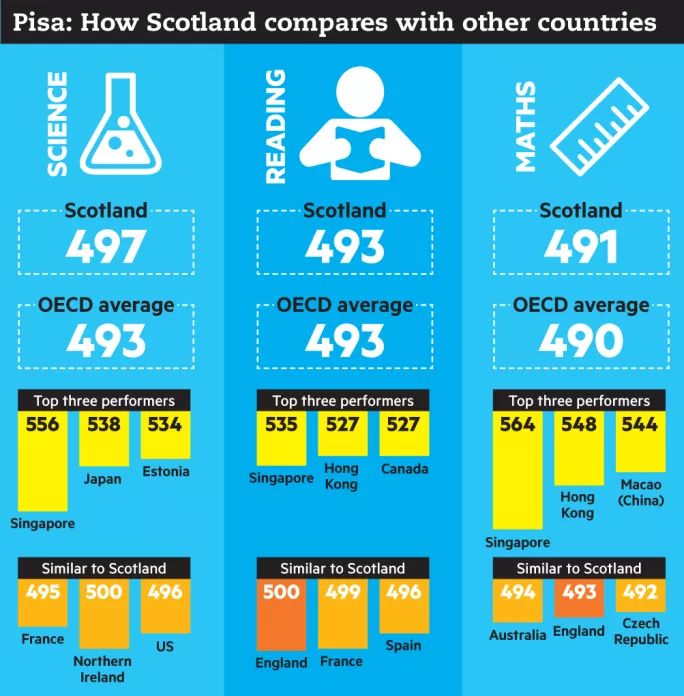‘A knee-jerk reaction will only make things worse’

A top education director has cautioned against “knee-jerk reactions” to Scotland’s disappointing performance in the Programme for International Student Assessment (Pisa) global education survey.
Education secretary John Swinney said that the results of the influential tests - which show that Scottish pupils’ performance in reading, maths and science has hit an all-time low - “underline the case for radical reform of Scotland’s education system”.
But Maureen McKenna, president of the education directors’ body ADES, said that the government was pushing a pace of change that was “unwelcome” and “unsustainable”. She acknowledged that change was needed, but said the speed with which it was being implemented was resulting in “basic errors” and putting at risk the tradition of consensus-building in Scottish education at risk.
‘It’s a question of bringing people with you. At the end of the day, is John Swinney going to teach every child?’
Ms McKenna, education director for Glasgow, told TESS: “I like to work at pace but it’s a question of bringing people with you. At the end of the day, is [John Swinney] going to teach every child?
“I would have loved to have done things faster in Glasgow but people have to be able to manage it, and you have to convince them of the need for change.
“We need to be careful; there should be no knee-jerk reaction to these results. A detailed analysis needs to be done.”
Her views were echoed by Scotland’s largest teaching union, the EIS, which also warned against “making snap judgements” in the wake of Tuesday’s Pisa results.
General secretary Larry Flanagan said that when 15-year-old students sat the Pisa assessments in 2015, the secondary sector was “undergoing major upheaval” with significant curricular reform and the introduction of a new qualifications system.

Call for consolidation
EIS assistant secretary Andrea Bradley told TESS that a period of consolidation was now needed, not more change.
“Even before the publication of the delivery plan [in June], we were calling for a period of consolidation for Curriculum for Excellence, given the breakneck speed with which the new qualifications had been rolled out. But instead of that we have had hyperactivity on the part of the government and the publication of the delivery plan with its scores of actions.
“The very nature of that raises questions about the ability to consult meaningfully with the profession - even the period of consultation for the governance review has been very tight.”
However, responding to Ms McKenna’s concerns about the pace of change - first aired at the ADES conference last month - Mr Swinney said that he did not accept the criticism. He argued that speed was necessary.
“Why is pace a problem, because we have to get on with it?” he said.
The education secretary added: “We have to be satisfied beyond doubt that everything is being done to strengthen education.”
Ms McKenna and Ms Bradley are not the first prominent figures in Scottish education to question the speed with which the Scottish government is trying to bring about change.
Keir Bloomer, the convener of the Royal Society of Edinburgh’s education committee, described the education delivery plan - published in June - as “unmanageable” because of tight timescales.
The plan sets outs actions required to close the attainment gap substantially over the next five years.
Meanwhile, Janet Brown, chief executive of exam body the SQA, recently described the timetable for scrapping unit assessments as “extremely, extremely aggressive”.
You need a Tes subscription to read this article
Subscribe now to read this article and get other subscriber-only content:
- Unlimited access to all Tes magazine content
- Exclusive subscriber-only stories
- Award-winning email newsletters
Already a subscriber? Log in
You need a subscription to read this article
Subscribe now to read this article and get other subscriber-only content, including:
- Unlimited access to all Tes magazine content
- Exclusive subscriber-only stories
- Award-winning email newsletters
topics in this article



